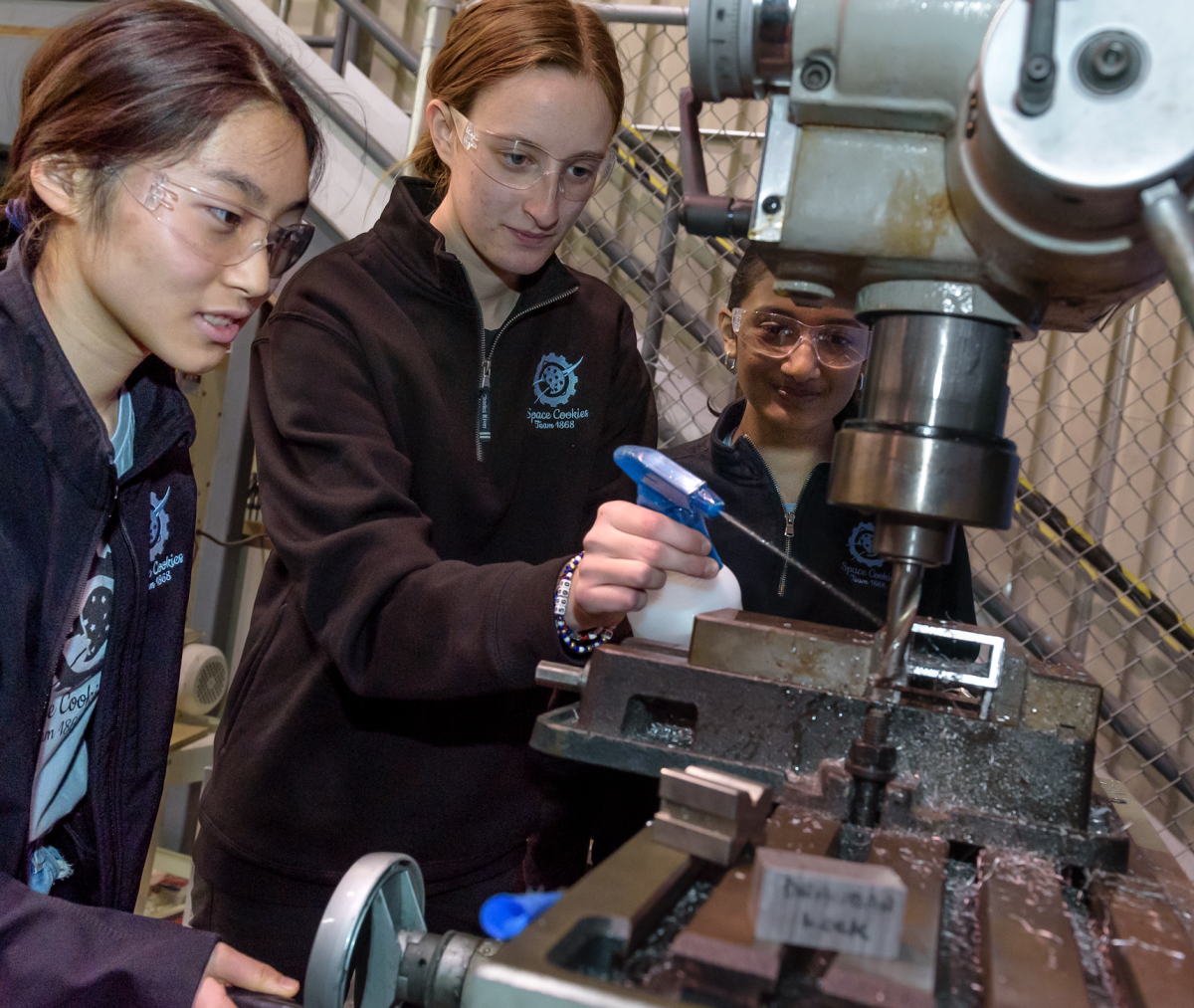“One time during an international call, our finance girl had joined to help with the logistics,” grimacing at the memory, Haley Oba, a long-time member of Space Cookies FRC 1868, recalls, “And after some awkward silence, they just simply asked where our finance dude was.”
However, as Oba points out, discriminatory experiences are more common than most people think — especially to Space Cookies, an all-girl robotics team working at the NASA Ames Research Center.
“I mean, I can tell that some people think that we are incompetent,” Oba said. “Some people don’t think we deserve respect.”
The Palo Alto High School Senior, who has been on the team her entire high school career, said that even if Silicon Valley is known for its innovation, stereotypes and microaggressions still seep into day-to-day interactions.
“There is this misconception that girls are equally represented in STEM, and that’s simply just not true,” Oba said.
According to MIT, in 2023, women made up 28% of the STEM workforce — a statistic that makes Oba proud that Space Cookies can foster an environment that isn’t intimidated by deep-rooted sexism.
“It’s so heart-warming to see how everybody comes together to support each other, despite the setbacks,” Oba said.
Starting with NASA’s mission to invest in more women-dominated spaces in STEM fields and Girl Scouts of America’s vision of supporting women in seeking STEM-related fields, Space Cookies was a partnership founded in 2006. Throughout the next two decades, Space Cookies recruited over 50 members from all corners of the Bay.
“The cool thing is that we have people that are coming from 24 different high schools,” Oba said
Participating in For Inspiration and Recognition of Science and Technology (FIRST) tournaments, Space Cookies reaches both national and international appreciation. With strong partnerships with numerous organizations, Oba highlights the opportunity and skills Space Cookies has brought her.
“It’s such a cool opportunity, and the skills you learn at Space Cookies are transferable anywhere,” Oba said.
Before Space Cookies, Oba was shy and nervous to speak aloud but as she flourished, she started talking louder and more confidently.
“My growth affected me in all parts of my life: school, home, leadership,” Oba said.
As a part of their Menstrual Equity initiative (m.e FIRST) to provide menstrual products for those in need, Space Cookies devotes their projects towards ensuring inclusivity deserves to be guaranteed everywhere.
Space Cookies’ impact spans deeper within the team as they prioritize having fun and learning rather than simply winning competitions. Elaine Kim, a Paly student on Space Cookies VEX Team 1868, a sister team specifically serving 7th to 12th graders, said that this learning style allows for a more friendly and open environment.
“In our team, only the girls touch the robot,” Kim said. “the coaches don’t touch the robot at all, so this allows for the girls to learn.”
Kim also mentioned that open houses can be a great place for people to learn more about the program. The ability of former students to give their testimonials on Space Cookies has shown a major influence on its popularity.
“When I first went, I was really amazed by how the robots could move and have different functions,” Kim said.
Being an all-girls team, Space Cookies showcases the growing polarity in diversity in the STEM field.
“My friend at Space Cookies talked about how in a mixed robotics team that she was in, the boys constantly told my friend that they would do the work,” Kim said. “Even when she asked what she could do to help.”
Highlighting the importance that Space Cookies has had on her perspective, Kim dives deep into explaining how seeing other former Space Cookies girls flourish, gives her hope that she will too.
“Being in Space Cookies, I have many older girls who are my role models,” Kim said. “Seeing them go into STEM fields in college gives me more insight into what I could do in the future.”
